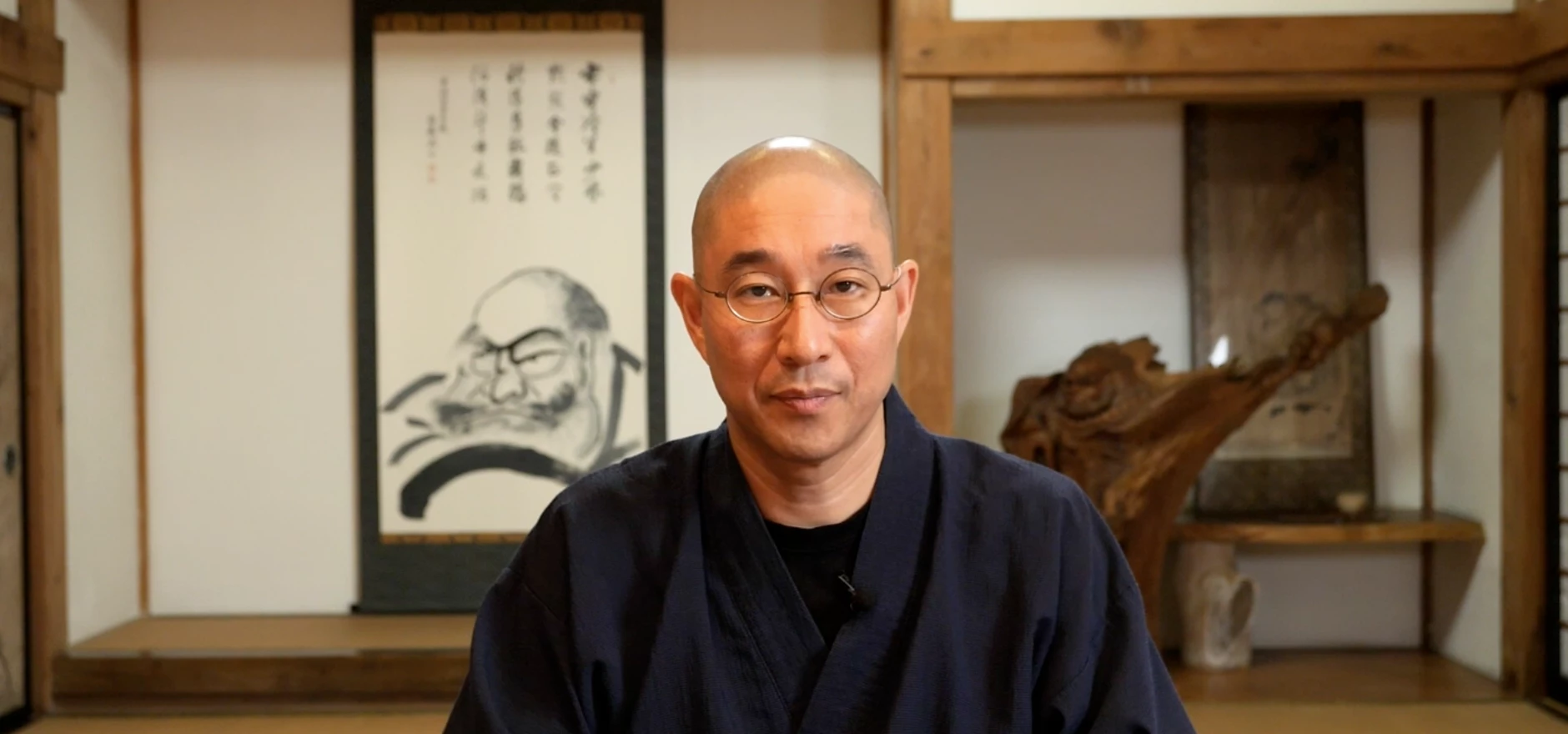
Partner Article
Zen Master Osho Taigu shares lessons for business longevity
“Management is a Buddhist philosophy” states Osho Taigu to his audience in Bermondsey during his recent visit to London. The head monk of the 540-year-old Fukugonji Temple in Komaki City in Japan emphasises this point as he addresses the challenges of contemporary business management.
“In essence, management is the art of weaving a strong and beautiful fabric, intertwining the weft of ingenuity with the warp of ‘truth’” he explains, linking ancient Buddhist wisdom with today’s modern management dilemmas.
Known as the “rebel monk”, Osho Taigu was ordained at Fukugonji Temple at the age of ten. However, feeling constrained by the monastery’s rigid customs and traditions, he chose to leave. He then pursued literature and, aged 32, launched several businesses that experienced varying degrees of success. Yet, as his enterprises expanded, he encountered significant human resources challenges.
He recognised that while it was possible to impart skills and knowledge, instilling values in employees was not as simple as making a profit. Realising that “employee education is human education,” he sought to cultivate an organisation that fostered personal growth rather than merely focusing on sales and compensation.
Similarly, for Taigu, financial comfort through the success of his business did not equate to happiness — a sentiment echoed by many wise figures throughout history. This revelation therefore led him back to Buddhism, and at the age of 40, he returned to the Fukugonji Temple.
Taigu however, has not allowed his experiences in business management to go to waste. Instead, he has integrated these lessons into his teachings, sharing valuable insights on business and management inspired by Buddhist philosophies with his followers.
His influence extends beyond the temple and beyond Japan. His YouTube channel has garnered millions of views in Japan and Taigu regularly travels to various countries, most recently visiting London in October 2024 under the patronage of the Pure Land Foundation. The Pure Land Foundation is a UK registered charity focused on advocacy for the benefits of Buddhism-inspired wisdom and practices to support social, spiritual and emotional wellness in response to the world’s mental health crisis. The foundation was first founded by philanthropist Bruno Wang in 2015.
In a video shared on YouTube by the Pure Land Foundation, Osho Taigu connects business longevity with core human values. He references a Bank of Korea report highlighting Japan’s remarkable statistic: it is home to 3,146 companies that have been operational for over 200 years, the highest in the world.
Taigu probes into the reasons behind Japan’s exceptional business longevity, attributing it to the character of the Japanese people, shaped by two primary influences: Shintoism and Buddhism.
Shintoism fosters a deep respect for nature, promoting gratitude and environmental stewardship, while Buddhism encourages individuals to cultivate their hearts and prioritise relationships and harmony in life and work. According to Taigu, these combined values have not only sustained Japanese companies but also enabled them to thrive through the centuries.
Osho Taigu advocates that any activity, including business, can become a form of meditation when approached with mindfulness and presence. He suggests that rather than viewing business merely as a means to generate profit or gain status, one can transform business activities into opportunities for personal growth and self-awareness.
In another video created for the Pure Land Foundation following Taigu’s visit to London in October 2024, Osho Taigu examines how wealth impacts mental health. He observes that many individuals are deeply affected by fluctuations in their financial status, indicating that if one’s mental well-being is closely tied to their savings, they are essentially adherents of the “religion of money.”
While acknowledging that money is necessary for living, Taigu emphasises that it should be regarded as a tool rather than an end goal. He warns against the relentless pursuit of wealth, highlighting that true happiness arises from factors such as health, contentment, meaningful relationships, and spiritual fulfilment — elements enshrined in Buddhist teachings as the path to happiness.
Osho Taigu advises that while financial security is practical, making it the ultimate objective can lead to dissatisfaction. He encourages a focus on creativity, quality, and passion, advocating for a balance between intuition and analytical thinking in decision-making.
Taigu thus views business not merely as a pathway to material gain but as a means to cultivate inner awareness, joy, and self-fulfilment. His teachings promote the importance of looking beyond short-term profits to create lasting value and meaning in one’s work.
To expand the reach of his message, Osho Taigu has created a series of new videos about the secrets of company longevity that will be made available on the YouTube channel of the Pure Land Foundation. Readers can subscribe on YouTube to be alerted when the new videos are published.
This was posted in Bdaily's Members' News section by Jane Wang .
Enjoy the read? Get Bdaily delivered.
Sign up to receive our popular morning London email for free.








 Navigating the messy middle of business growth
Navigating the messy middle of business growth
 We must make it easier to hire young people
We must make it easier to hire young people
 Why community-based care is key to NHS' future
Why community-based care is key to NHS' future
 Culture, confidence and creativity in the North East
Culture, confidence and creativity in the North East
 Putting in the groundwork to boost skills
Putting in the groundwork to boost skills
 £100,000 milestone drives forward STEM work
£100,000 milestone drives forward STEM work
 Restoring confidence for the economic road ahead
Restoring confidence for the economic road ahead
 Ready to scale? Buy-and-build offers opportunity
Ready to scale? Buy-and-build offers opportunity
 When will our regional economy grow?
When will our regional economy grow?
 Creating a thriving North East construction sector
Creating a thriving North East construction sector
 Why investors are still backing the North East
Why investors are still backing the North East
 Time to stop risking Britain’s family businesses
Time to stop risking Britain’s family businesses